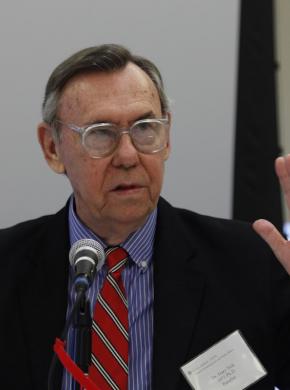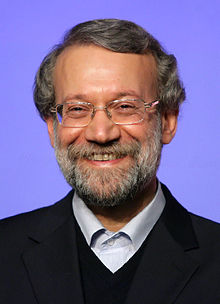June 17, 2016

Gary Sick, a major US figure in dealing with Iran during the revolution, says the documents used by the BCC in a story last week are accurate, but the BBC twisted their meaning to produce a false narrative.
Iranian officials, meanwhile, went into overdrive, denouncing the documents as fakes, forgeries and fabrications.
The documents showed Ayatollah Ruhollah Khomeini telling American officials he had no problem with the United States and would not challenge US interests when he took power. (See Iran Times of last week, Page One.)
In the United States, conservatives saw the documents as further proof that Iran’s revolutionaries had played President Jimmy Carter like a violin and taken him to the cleaners. But Sick, who was in the White House as the chief aide dealing with the Iran issue, said no one was fooled by Khomeini’s comments and everyone understood he was just trying to prevent the United States from seeking to undermine his efforts.
In a blog posting last Saturday, he said, “Nobody in the US government—nor in Iran as far as I know—interpreted Khomeini’s words in these messages—or in his public pronouncements in favor of peace, stability, democracy, human rights, women’s rights etc.—as evidence that he either wanted or expected a continued close relationship with the United States.”
Sick also said, “There are some factual errors in the BBC report.” He only cited one, however. The BBC said that a cable from US Ambassador William Sullivan in November 1978 said the Shah was “doomed.” Sick said flatly: “The message did not claim the Shah was doomed.”
In Tehran, revolutionaries were incensed because they feared the documents would be seen as portraying Khomeini as currying favor with the Americans, when the official portrayal shows him as a strong leader always defying the United States.
The Islamic Republic did not see the documents as showing Khomeini as a wily operator working hard to keep the Americans at a distance while he worked to gather all power in his hands.
Majlis Speaker Ali Larijani was especially vocal, calling the BBC’s story a “deceitful” and “diabolical move” aimed at “raising doubts about the authenticity of Imam Khomeini’s fight against America.” He said the goal of the BBC story was to normalize relations between the United States and Iran.

Larijani said, “The aim behind this fabrication was possibly to apply a shock to public opinion so that the stigma of ties with America drops and it is believed that this connection with America even under the hardest of conditions existed before.”
This was a highly imaginative and convoluted conspiracy theory obscuring the obvious thread of the BBC report, which was to show Khomeini dissembling in one message after another to calm American fears that he would be an anti-American figure.
Supreme Leader Ali Khamenehi also made a brief reference to the BBC report and also called the documents it cited “fabricated.”
Sick said the attention paid to the BBC report “is a tempest in a teapot. The details of the exchange in their full context have been available in the public domain for at least three decades. The released of these documents, while welcome, adds nothing that we did not already know.”
However, the documents have not been released by the BBC. The BBC quotes from some of the documents. But it does not say whence it obtained them. And it has not posted them so that the context of its few quotes can be checked out.



















